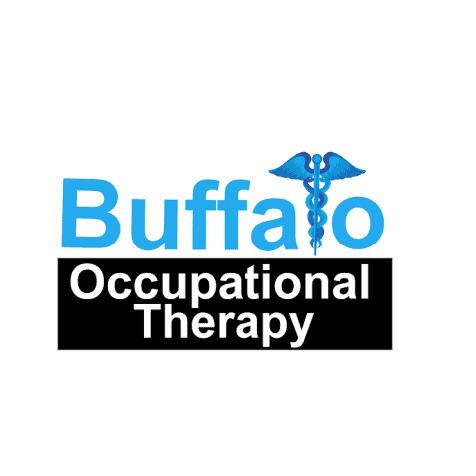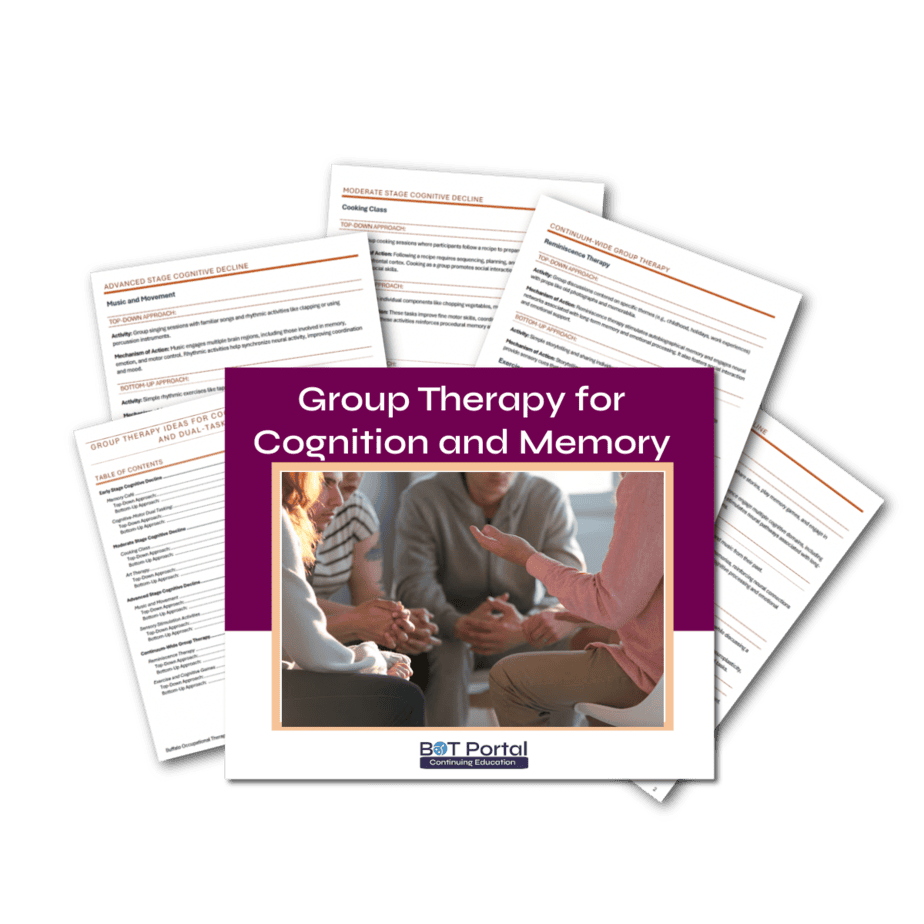Description
Group Therapy Ideas for Cognition, Memory, and Dual Tasking
Occupational Therapy Cognition Group Therapy Ideas
This group therapy Ideas in occupational therapy resources offer a dynamic and effective approach to addressing cognitive decline and memory degeneration. This method leverages social interaction, cognitive stimulation, and physical activity to create a comprehensive therapeutic environment that enhances the well-being of individuals across various stages of dementia. The rationale for this approach is rooted in both the top-down and bottom-up activity analysis frameworks, ensuring that therapy is both goal-oriented and skill-based.
Social Interaction and Cognitive Engagement
One of the primary benefits of group therapy is the opportunity for social interaction. Engaging with peers in a structured environment helps maintain and improve social skills, reduces feelings of isolation, and enhances emotional well-being. Social interaction is critical for individuals with dementia, as it stimulates cognitive processes such as memory recall, language, and executive function. Activities like Memory Cafés and Reminiscence Therapy utilize shared experiences and storytelling, which not only reinforce long-term memory but also foster a sense of community and support.
Holistic Cognitive Stimulation
Group therapy sessions are designed to provide holistic cognitive stimulation, engaging multiple domains of cognitive function simultaneously. For example, Cognitive-Motor Dual Tasking combines physical activity with cognitive challenges, promoting neuroplasticity and enhancing both motor and cognitive skills. Cooking classes and art therapy sessions require participants to follow sequences, solve problems, and express creativity, all of which engage different brain regions and cognitive processes. This comprehensive engagement is crucial for maintaining cognitive function and slowing the progression of dementia.
Physical Activity and Motor Skills
Incorporating physical activity into group therapy is essential for maintaining physical health and mobility, which are often compromised in individuals with dementia. Exercise and movement-based activities, such as Music and Movement sessions or Exercise and Cognitive Games, stimulate the motor cortex and improve coordination, balance, and strength. Physical activity also has the added benefit of enhancing mood and reducing symptoms of depression and anxiety, which are common in dementia.
Sensory Stimulation and Emotional Well-being
Sensory stimulation activities play a vital role in dementia care by engaging the senses to evoke memories and emotions. Gardening, cooking, and sensory-rich exercises stimulate sensory receptors and enhance sensory processing capabilities. These activities provide a multi-sensory experience that can improve cognitive engagement and emotional well-being. They also offer opportunities for individuals to connect with familiar and pleasurable experiences, fostering a sense of purpose and satisfaction.
Preventing Overhelping and Promoting Independence
Group therapy activities are carefully designed to prevent overhelping and promote independence. Encouraging participants to engage in tasks they can perform themselves, even with modifications, helps maintain their abilities and confidence. Overhelping can lead to accelerated loss of skills and increased dependency, whereas fostering independence supports the “use it or lose it” principle. This approach helps individuals retain their functional abilities for as long as possible.
Comprehensive and Personalized Care
The dual focus on top-down and bottom-up approaches ensures that therapy is both comprehensive and personalized. Top-down activities are goal-oriented and engage higher-order cognitive functions, while bottom-up activities focus on building and maintaining fundamental skills. This combination addresses the diverse needs of individuals with dementia, providing a balanced and effective therapeutic experience.
What is included?
- 5 pages of group therapy ideas
Parkinson’s Disease Interventions
.Other Useful Links:
Check out BOT Portal: Resource Site for Occupational Therapy Students and Practitioners




